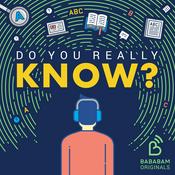143 episodes
- Send Gemma a message
Here's a nurturing gift for you
Let me know if you'd like more meditations like this 🩷🩷
Support the show
🎁 Dating With Insight - FREE Guide
🩷 Love Wisely Priority list - we start April 16
💛 Access Elevate You Worth: Self-Worth Healing Bundle
Connect with Me
📩[email protected] 🌐 Website: drgemmagladstone.com
📷 Instagram: @drgemmagladstone
🚩 The Red Flag Project - your ultimate guide to red flags! Get Instant Access
🌻 Support the Podcast
Love the show? Help us keep going with a monthly contribution: Support here - Send Gemma a message
Many women struggle in relationships without ever being taught one essential truth: you are allowed to have emotional needs.
In this episode of Healing for Love, Gemma explores the concept of core emotional needs through a schema therapy lens and explains why unmet needs sit at the heart of so many repeating relationship patterns.
You’ll learn how unmet emotional needs shape schemas like abandonment, emotional deprivation, subjugation, self-sacrifice and approval-seeking and why these patterns often lead women into relationships that feel unsafe, one-sided, controlling or emotionally barren.
This episode is especially relevant if you have ever:
Felt guilty for wanting “too much” in relationships
Struggled to name your needs or voice your preferences
Found yourself prioritising others while neglecting yourself
Stayed in relationships that felt familiar but deeply unsatisfying
Find out all about the six core emotional needs
Key Takeaway
A healthy relationship is not about chemistry or intensity.
It is about how consistently your core emotional needs are met.
Work With Gemma
Join the Love Wisely priority list for the April intake
Stay tuned for details of a free training coming up
Apply for limited 1:1 coaching places currently available
Support the show
🎁 Dating With Insight - FREE Guide
🩷 Love Wisely Priority list - we start April 16
💛 Access Elevate You Worth: Self-Worth Healing Bundle
Connect with Me
📩[email protected] 🌐 Website: drgemmagladstone.com
📷 Instagram: @drgemmagladstone
🚩 The Red Flag Project - your ultimate guide to red flags! Get Instant Access
🌻 Support the Podcast
Love the show? Help us keep going with a monthly contribution: Support here - Send Gemma a message
In today’s episode, I answer a short but powerful question that came in anonymously:
“Hi Gemma, I cannot even get a match, let alone a date. What the hell is wrong with me?”If you’ve ever stared at a dating app wondering why nothing is happening and quietly concluded “it must be me”, this episode is for you.
I'll look at three key areas:
The reality of modern dating apps – why they create a distorted, “smorgasbord” environment where incredible, emotionally available people are often overlooked.
Other people’s issues – how emotional immaturity, avoidance and misaligned intentions show up on the apps (and why you can’t control that).
Your schemas and your “type” – how schema chemistry and rigid “type” criteria might be leading you towards emotionally unavailable partners and away from people who could actually be good for you.
I’ll invite you to:
Re-examine how you’re presenting yourself on the apps (without becoming a slave to what you think men want).
Widen the pool by giving a chance to the “6 or 7 out of 10” guys (ie, the level of chemistry you feel! I'm not rating people!) who feel kind, calm and safe – rather than only chasing the intense 10/10 chemistry.
Remember that your worth, lovability and desirability are not measured in matches.
If you’re feeling discouraged or asking “what’s wrong with me?”, I want you to know: you are not the problem. Dating apps are hard and your current results say nothing about your deeper value or your capacity for a healthy, loving relationship.
In this episode, you’ll learn:
Why so many wonderful women and emotionally available men get passed over on dating apps
How our throwaway, dopamine-driven culture affects the way people swipe
Why leading with highly sexualised photos can accidentally screen out good men
How schema chemistry pulls you towards what’s “familiar” rather than what’s healthy
How to gently expand beyond your usual “type”
Practical ways to pace yourself and protect your emotional wellbeing while dating
Resources mentioned:
Free guide: Dating with Insight – download via the link in the show notes.
Love Wisely – my 12-week online group program for women who want to break their pattern of choosing emotionally unavailable, narcissistic or avoidant partners. Doors open again in March – join the priority waitlist via the link in the show notes.
Episode 130 – on cultivating a new dating mindset (recommended companion episode).
Support the show
🎁 Dating With Insight - FREE Guide
🩷 Love Wisely Priority list - we start April 16
💛 Access Elevate You Worth: Self-Worth Healing Bundle
Connect with Me
📩[email protected] 🌐 Website: drgemmagladstone.com
📷 Instagram: @drgemmagladstone
🚩 The Red Flag Project - your ultimate guide to red flags! Get Instant Access
🌻 Support the Podcast
Love the show? Help us keep going with a monthly contribution: Support here - Send Gemma a message
We hear the term “emotionally unavailable” all the time, yet many women are not sure what the opposite actually looks like in real life. In this episode, Gemma breaks down emotional availability in clear, practical terms, so you can recognise it early, feel safer in your body and stop settling for relationships that leave you guessing.
Gemma also explores how schemas like Emotional Deprivation and Abandonment shape what feels “normal” in love, why emotionally safe partners can feel boring or suspicious at first, and how you can slowly retrain your nervous system to relax into healthy connection.
In this episode, you will learn:
What the Emotional Deprivation schema isHow it forms in childhood
Why it makes it hard to identify and express your needs
Why you can consciously want an emotionally available partner yet keep feeling pulled toward distance, inconsistency, or intensity
How schemas and your unconscious “love template” drive partner choice and keep you in familiar but unfulfilling patterns
Ten signs of an emotionally available partner, including someone who:Takes an active interest in you, asks thoughtful questions, remembers details, and wants to know your inner world
Has actions that match their words, shows up consistently, and follows through
Is emotionally responsive, listens when you are vulnerable, validates your feelings, and attempts repair after conflict
Is predictable rather than chaotic, so your nervous system can settle instead of living on high alert
Is willing to talk about the relationship and co create something with you instead of avoiding emotional conversations
Has emotional self awareness, can name their feelings, take responsibility, and does not shame you for having emotions
Shows care through steady, thoughtful actions that leave you feeling valued and appreciated
Allows closeness without pulling away or going hot and cold after intimacy
Makes room for your needs and respects your boundaries, instead of calling you “too needy” when you ask for contact or reassurance
Is kind in a felt way - gentle with your vulnerabilities, respectful in conflict, and emotionally generous
Why emotional availability can feel “boring” or even suspicious if you grew up with chaos, distance, or inconsistency
A real life example from a Love Wisely client who noticed her physical tension drop when she finally dated someone emotionally available
How to start looking at your own relationship history through the lens of schemas and emotional availability so you can choose differently next time
Gemma finishes with an invitation to reflect gently on your past connect
Support the show
🎁 Dating With Insight - FREE Guide
🩷 Love Wisely Priority list - we start April 16
💛 Access Elevate You Worth: Self-Worth Healing Bundle
Connect with Me
📩[email protected] 🌐 Website: drgemmagladstone.com
📷 Instagram: @drgemmagladstone
🚩 The Red Flag Project - your ultimate guide to red flags! Get Instant Access
🌻 Support the Podcast
Love the show? Help us keep going with a monthly contribution: Support here - Send Gemma a message
Dating can stir up every schema you have. If you have a history of emotionally unavailable partners, narcissistic relationships or spending years in situationships that never really went anywhere, getting back out there can feel both hopeful and terrifying.
In this episode I walk you through ten grounded mindset shifts that help you stay in Healthy Adult mode while you date so you can notice red flags, take in green flags and stop abandoning yourself in the process.
I talk about:
Why dating is data
How to shift the goal from “finding the one” to “showing up grounded and observant”
How to stay open to experience and still be discerning
What it means to embrace ambiguity without losing yourself, especially if you have an abandonment schema
Why you need to replace “stay positive” with “stay real” so you do not slide into the “super easygoing, no needs” people pleasing role
The power of focusing on internal milestones, not external outcomes
How to normalise the emotional rollercoaster of dating when schemas and old attachment wounds get activated
What it looks like to cultivate self trust over outcome obsession
How to reframe rejection as clarity, especially when ghosting or avoidant behaviour shows you who someone really is
Why breaking the pattern of fantasy thinking is essential if you tend to fall for potential rather than reality
The protective power of letting people reveal themselves over time
This episode is for you if:
You have a history of choosing emotionally unavailable or narcissistic partners
You find it very hard to tolerate uncertainty in early dating
You often override your needs because you do not want to be “too much” or “difficult”
You get attached quickly and then feel anxious, preoccupied and on edge
You want a practical, compassionate framework for dating differently
1:1 coaching
If you would like to explore working with me privately you can email me at [email protected] for details on my coaching packages.
Support the show
🎁 Dating With Insight - FREE Guide
🩷 Love Wisely Priority list - we start April 16
💛 Access Elevate You Worth: Self-Worth Healing Bundle
Connect with Me
📩[email protected] 🌐 Website: drgemmagladstone.com
📷 Instagram: @drgemmagladstone
🚩 The Red Flag Project - your ultimate guide to red flags! Get Instant Access
🌻 Support the Podcast
Love the show? Help us keep going with a monthly contribution: Support here
More Education podcasts
Trending Education podcasts
About Healing For Love
Healing for Love A podcast for anyone who wants to stop shrinking, start healing, and grow into their most grounded, authentic self in love & life. Hosted by Dr Gemma Gladstone — relationship coach, former clinical psychologist (25+ years), and expert in schema healing — this podcast offers thoughtful, insight-rich episodes to help you understand your patterns, heal from past emotional wounds, and gently rewrite your relationship template.Here, you’ll learn how to reconnect with your worth, trust your inner voice, and build relationships that support who you truly are.This is for the woman who’s ready to feel more secure, more whole, and more herself — in love and in life.
Podcast websiteListen to Healing For Love, The Tony Robbins Podcast and many other podcasts from around the world with the radio.net app

Get the free radio.net app
- Stations and podcasts to bookmark
- Stream via Wi-Fi or Bluetooth
- Supports Carplay & Android Auto
- Many other app features
Get the free radio.net app
- Stations and podcasts to bookmark
- Stream via Wi-Fi or Bluetooth
- Supports Carplay & Android Auto
- Many other app features


Healing For Love
Scan code,
download the app,
start listening.
download the app,
start listening.




































